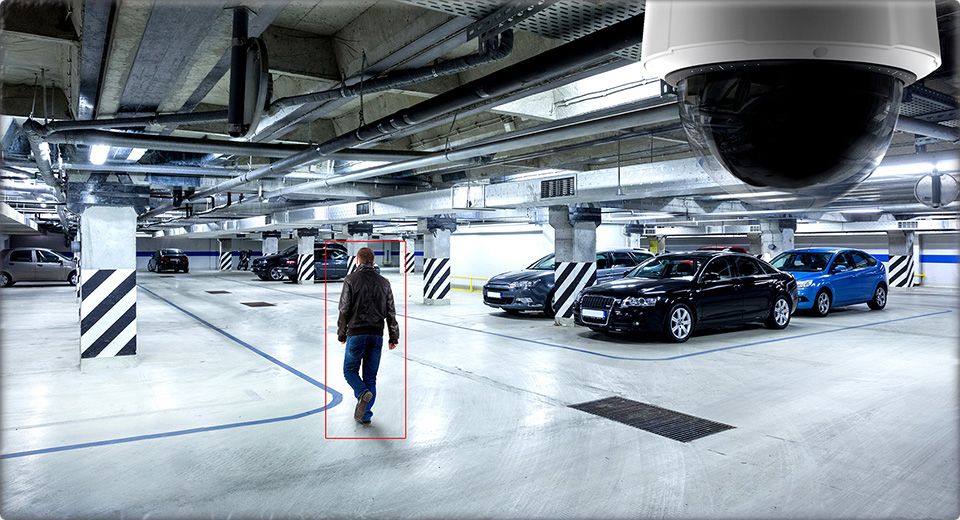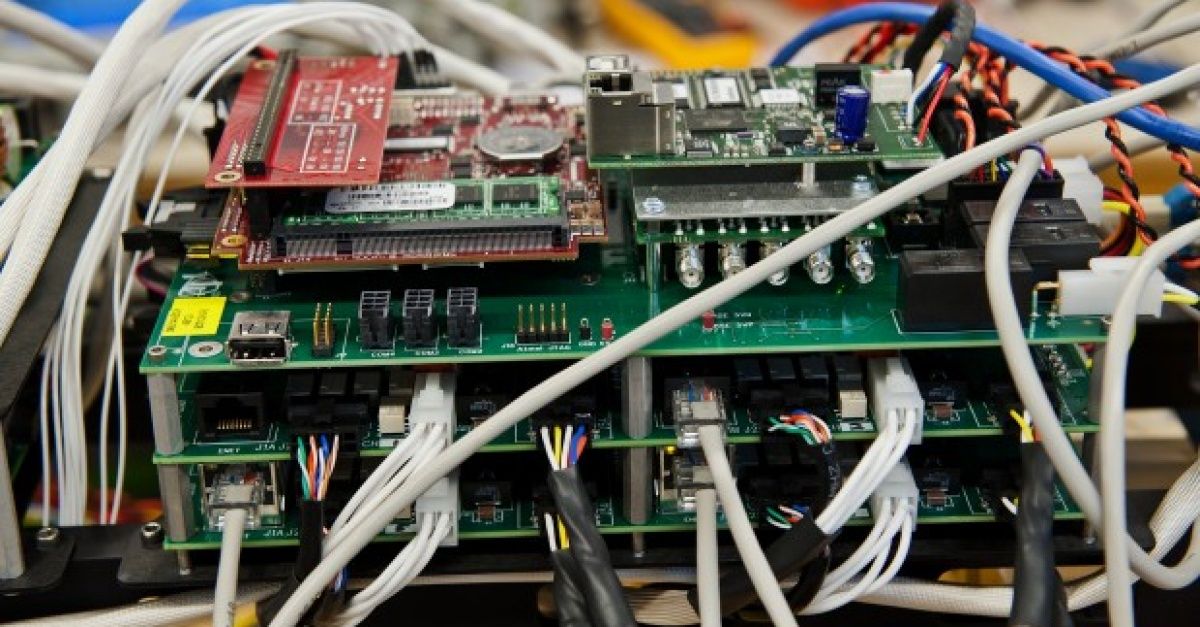An article by the Mirror on possible future drone terrorist attacks:
Swarms of cheap 3D-printed drones could be used to carry out deadly terror attacks.


Biometrics using DNA along with other recognition technology brings additional identity protection; however, is it just me or are others understanding the risk with our DNA and other bio info being online given the existing weak infrastructure and under pinning technology. Without a QC secured internet and infrastructure; I would hesitate having my bio/ DNA information online for hackers and terrorists.
Once your identity with the DNA is online; it will be extremely hard to do a reset button on your identity because things like an id number such as a US Social Security number, etc. can be changed; but DNA identity is not that achievable even with CRISPR.
The official Yili Daily reported that from the first of June, residents of the Yili Kazakh Autonomous Prefecture in China’s far northwest must present the police with DNA samples, fingerprints, voice prints and a “three-dimensional image” when applying for travel documents.
Members of the majorly Muslim Uighur community in Xinjiang complain of discrimination, especially facing denials of passport applications including limits placed on their culture and religion.
Based on the paper, the new policy that came into effect before the commencement of the holy month of Ramadan which started on Monday, refers to applications for and renewals of passports, entry permits to Taiwan and two-way permits to Hong Kong and Macau.

With the element of terrorists in society today; things like video data/ information and biometrics will grow increasingly in demand within the immediate years a key peice that will require improvements in the timely performance and interpretation of the information via the technologies used to collect, analyze, interpret, and present the information to users as well as respecting the privacy of innocent civilians. However, Civilians will also need to do their own part in reasonableness of when and why certain sets of data must be collected.
The Intelligence Advanced Research Projects Activity (IARPA), a division of the Office of the Director of National Intelligence, will host a Proposers’ Day Conference for the Deep Intermodal Video Analytics (DIVA) program on July 12, 2016, in anticipation of the release of a new broad agency announcement (BAA) solicitation.
The purpose of the conference, which will be held in Washington, DC, will be to provide information on DIVA and the research problems the program aims to address, to address questions from potential proposers and to provide a forum for potential proposers to present their capabilities for teaming opportunities.
The DIVA program will be designed to develop robust automated activity detection for a multi-camera streaming video environment. As an essential aspect of DIVA, activities will be enriched by person and object detection, as well as recognition at multiple levels of granularity. DIVA is anticipated to be a three-phase program.

Wow — scary. Not scary for law abiding citizens to do this; scary due to criminals & terrorists. And, we have seen the ammo and high quanity gun clip already produced as well.
The 28-year-old is the face of open-source 3D gun design, an online movement of enthusiasts who use 3D printers and machining tools to build their own homemade weapons – ones that can shoot very real, and very deadly bullets.
Wilson isn’t some gun loon on an online soapbox; he is a well-educated, well-spoken, very argumentative young man who’s as responsible for creating his press portrayal as the journalists who’ve written about him. “I’m now more and more of a self-caricature,” he tells me. “I’ve had to become a fanatic over the past three years just to move the ball another three yards.”

I do love and believe in the benefits of 3D printing; however, as a technologist and concerned informed citizen I do worry about this technology getting the hands of drug lords, terrorists, and other criminals. With Medical 3D printing; illegal drug manufacturing can change overnight and expanded to new levels of mass production. Also, illegal weapon production can be enhanced as well with 3D printing.
At this point, law enforcement in 1st and 2nd world countries are going to face harder times than they ever have in the recent past and before. 3D Printing and AI are truly going to take an already difficult situation for government and their law enforcement teams extremely tough in the coming 3 to 5 years; and hope they and tech come together to figure out a good go forward plan to ensure right benefits are received and progress not slowed down while keeping everyone safe.
Materialise incorporates more than 25 years of 3D printing experience into a range of software solutions and 3D printing services, which together form the backbone of the 3D printing industry. Materialise’s open and flexible solutions enable players in a wide variety of industries, including healthcare, automotive, aerospace, art and design, and consumer goods, to build innovative 3D printing applications that aim to make the world a better and healthier place.
Fried Vancraen, CEO of Materialise – recently called upon industry stakeholders to come to an agreement for a common standard for measuring the clinical, economical and patient benefits of medical 3D printing.

I am so glad to see this from Bill. Until we drastically improve the under pinning technology to an advance mature version of Quantum Computing; AI is not a threat in the non-criminal use. The only danger is when terrorists, drug cartels, and other criminals uses AI such as drones, robotics, bots, etc. to attack, burglarize, murder, apply their terror, etc.; and that is not AI doing these things on their own.
Munger, Gates on future of AI
Charlie Munger, Berkshire Hathaway vice-chairman shares his thoughts on American Express, Costco and IBM’s future working with artificial intelligence. And Bill Gates, explains why it will be a huge help.

The creative acronym – SILMARILS – comes from “Lord of the Ring’s” magical lore. IARPA’s goals for the project are anything but fictional.
Current technologies for detecting narcotics, explosives and other dangerous chemicals requires physical contact between humans and X-ray-based machinery like those stationed within major airports that scan suitcases and luggage.
In other cases, a human must swab samples of a substance and run them through a similar machine, which is time and labor consuming and risky.

Most traditional vaccines have safety and efficacy issues, whereas particulate vaccine delivery systems—which utilize nano- or micro-particulate carriers to protect and deliver antigens—are efficient, stable, include molecules to bolster immune responses, and minimize adverse reactions due to the use of biocompatible biomaterials.
A new review, titled “Particulate delivery systems for vaccination against bioterrorism agents and emerging infectious pathogens,” summarizes the current status of research efforts to develop particulate vaccine delivery systems against bioterrorism agents and emerging infectious pathogens.

The tragedy in Brussels shocked the world this week—but the aftershocks of the March 22 terrorist bombings are likely to include follow-on cyber-threats.
These attacks typically involve hackers targeting critical infrastructure in order to cause chaos and physical damage, alongside fear and financial damage.
“We have been able to identify a pattern of behavior of cyber attackers and attack methods surrounding major terrorist events in Western Europe, the latest such pattern was identified after the November 2015 Paris terrorist attacks,” Cytegic noted in an intelligence brief shared with Infosecurity.

Is this another strategy to fight terrorism by seeing from techies and others the various ways terrorists can take every day items to create weapons?
Do you want to be a MacGyver and turn everyday household items into Decepticons? Then DARPA’s new Improv program wants you.
This sounds like a Transformers movie. Or a MacGyver episode. Heck, this could even be a precursor to Skynet and future Terminators. OK, that last one may not apply, but a new DARPA program wants people who can weaponize a toaster.
The U.S. Defense Advanced Research Projects Agency (DARPA) has launched a program called Improv and is soliciting creative minds to submit proposals on how common off-the-shelf, internet-connected items can be used as weapons.